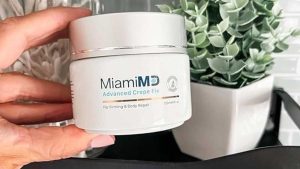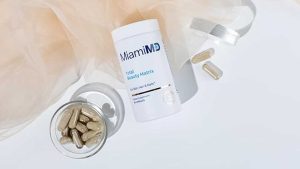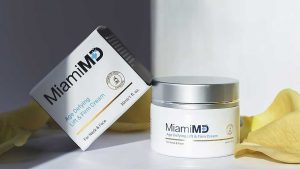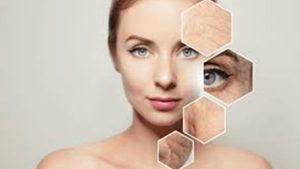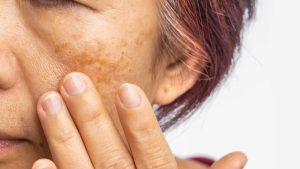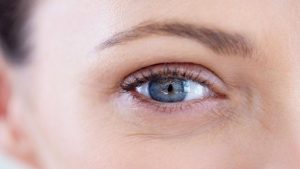How To Prevent Wrinkles While Sleeping
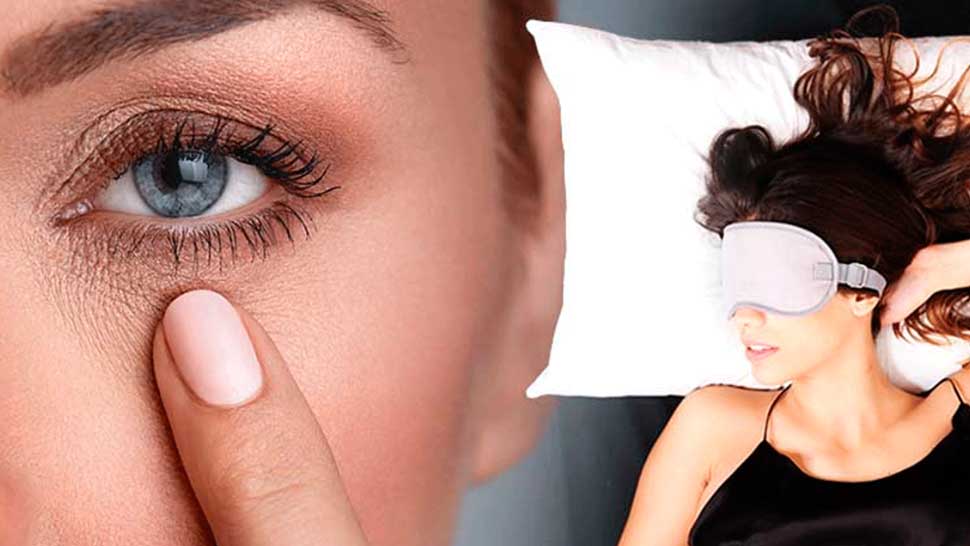
Wrinkles are a normal part of aging, but there are ways to slow them down — especially while you sleep. Your nighttime routine plays a big role in how your skin looks and feels over time. With a few simple changes, you can protect your skin and wake up looking refreshed.
Today, we’ll talk about what causes wrinkles and give you tips on how to prevent them while you catch some beauty sleep.
What Causes Wrinkles?
Facial wrinkles and creases can be caused by a variety of factors. Here’s what to know.
Aging Process
As we get older, our skin naturally loses its ability to stay firm and smooth. This is because our bodies make less collagen, which is what keeps our skin strong and stretchy. “Between the ages of 25 and 30, we begin to lose one percent of collagen annually. This process accelerates after the age of 40,” says Dr Paolo Facchinei Fleming (1). The less collagen we have, the more likely wrinkles will form.
In addition, the production of elastin, the protein responsible for skin elasticity, also slows down, making it harder for skin to bounce back after stretching or folding. This is why repeated facial expressions, like smiling or frowning, can lead to permanent lines over time.
The skin’s natural moisture levels also decline with age, contributing to dryness and a more fragile texture that makes wrinkles appear more pronounced. Combined, these changes are a normal part of aging, but they can be managed with proper skincare and lifestyle habits.
Dehydration
When your skin is dry, it’s more likely to wrinkle. Staying hydrated inside and out is key to keeping your skin plump and healthy. If you don’t drink enough water, your skin might look dull, and wrinkles may stand out more.
Dehydration also weakens your skin’s natural barrier, making it more susceptible to damage from environmental factors like pollution and UV rays. ” As we age, the essential lipids — such as cholesterol, fatty acids, and ceramides — are depleted,” explains Dr. McCarthy, aesthetic doctor (2).
“These lipids are essential for our skin to maintain healthy barrier function. If these are lost, our skin loses moisture more quickly and can become dry and irritated. An impaired skin barrier can also result in more visible signs of aging.” In addition to drinking plenty of water, using hydrating skincare products can help lock in moisture and give your skin a smoother, more youthful appearance.
Skin Damage
Things like pollution and harsh chemicals can damage your skin over time, causing it to lose its smoothness and firmness. These factors can speed up wrinkle formation by breaking down the collagen and elastin that keep your skin strong and elastic.
Pollution, for example, exposes your skin to harmful particles and free radicals that penetrate deep into the skin, leading to oxidative stress. This stress weakens your skin’s ability to repair itself, resulting in premature aging, uneven texture, and fine lines. Studies are even showing an increasing link between air pollution and inflammatory skin conditions (3).
Harsh chemicals, often found in certain skincare or cleaning products, can strip away your skin’s natural oils and compromise its protective barrier. This leaves your skin more vulnerable to dryness, irritation, and environmental damage.
Over time, repeated exposure to these factors can lead to chronic inflammation, which accelerates the breakdown of skin cells and contributes to deeper wrinkles. Protecting your skin with gentle, nourishing products and regular cleansing to remove pollutants is essential for maintaining its health and youthful appearance.
Sun Exposure
The sun’s UV rays can cause a lot of skin damage. “ Unprotected sun exposure causes skin aging and skin cancer, regardless of skin color,” warns cosmetic dermatologist Dr. Bunting (4). Sun exposure makes your skin age faster, which is called “photoaging.” Wrinkles from the sun can show up early, especially if you don’t use sunscreen.
Over time, prolonged exposure can lead to deeper wrinkles, uneven skin texture, and dark spots, also known as sunspots or age spots.
UV damage weakens your skin’s ability to repair itself, leaving it more vulnerable to further harm. Even a few minutes of unprotected exposure each day can add up, causing noticeable aging over time. Protecting your skin from the sun is one of the most important steps you can take to maintain a youthful and healthy appearance.
How To Minimize the Look of Wrinkles Overnight
Now that we’ve covered the causes of wrinkles, let’s talk about a few things you can do to help minimize the appearance of existing wrinkles and fine lines.
Change Your Sleeping Position
Sleeping on your stomach or side can press your face into the pillow, which can cause lines on your facial skin that are known as sleep wrinkles or sleep lines (5). “If you do this repeatedly, it can, with time, cause more etched lines or wrinkles,” said Cindy Wassef, MD (6).
The pressure from your face being pushed against the pillow while side sleeping can disrupt the skin’s natural smoothness, leading to the formation of deep lines that may become permanent over time. These sleep wrinkles are most common around the forehead, cheeks, and chin.
To prevent this from happening, try back sleeping instead. When you sleep on your back, your face is less likely to be pressed against the pillow, reducing the risk of creating these lines. If sleeping on your back feels uncomfortable, you can try using pillows to prop yourself up in a position that discourages turning to your side or stomach. While it may take some time to adjust, changing your sleeping position and avoiding sleeping face down can help reduce wrinkles and maintain smoother, wrinkle-free skin in the long run.
Incorporate Collagen Into Your Skincare
Since your body makes less collagen as you age, using skincare with collagen or taking hydrolyzed collagen peptides can help keep your skin firm and reduce the appearance of wrinkles.
Collagen is a key protein that provides structure and elasticity to the skin, and as its production slows down, skin can start to sag and develop fine lines. By incorporating collagen-boosting products like serums, creams, or even supplements, you can help replenish your skin’s collagen levels.
Hydrolyzed collagen peptides are particularly effective because they are broken down into smaller molecules, making them easier for your body to absorb. When used regularly in night creams and other topicals, these ingredients can improve skin hydration, texture, and overall appearance, making your skin look plumper and more youthful.
In addition to topical collagen, a healthy diet rich in collagen-building nutrients, such as vitamin C, zinc, and amino acids, can further support your skin’s collagen production and improve skin health from the inside out.
Opt for a Silk Pillowcase
High-quality silk or satin pillowcases are soft and gentle on the skin. They cause less friction than regular cotton pillowcases, which means fewer lines and wrinkles in the morning. Cotton pillowcases can tug at your skin as you move in your sleep, contributing to the formation of fine lines over time.
Not only that, but silk helps with the absorption of skincare products, allowing your creams and serums to stay on your skin longer instead of being absorbed by the fabric. This makes your nighttime skincare routine more effective and ensures that your products work harder while you sleep.
“ Our skincare isn’t doing much good on our pillowcase,” says Manhattan cosmetic dermatologist Dr. Dendy Engelman, “so limiting that absorption and friction allows our skincare products to work harder for us” (7).
Try Retinol
Retinol is a skincare ingredient that helps speed up the skin’s renewal process, making it look smoother and younger. It’s great for reducing fine lines and wrinkles by increasing cell turnover, which removes dead skin cells and encourages the growth of new, fresh skin. As a result, your skin appears brighter, more even-toned, and firmer.
Retinol also boosts collagen production, helping to strengthen the skin and reduce the appearance of sagging. For the best results, start using retinol gradually, as it can be potent and may cause irritation if introduced too quickly. Over time, regular use of retinol can lead to a noticeable reduction in wrinkles and a more youthful complexion.
“I consider it a gold standard in skincare and often explain it to my patients as something that sweeps away dead skin cells, clogged pores, and dull skin,” says board-certified dermatologist Francesca Fusco (8).
Use a Nourishing Moisturizer Before Bed
A rich, hydrating moisturizer helps keep your skin plump and hydrated while you sleep. Look for moisturizers with ingredients like hyaluronic acid or ceramides, which are great for locking in moisture. These ingredients work by strengthening your skin’s natural barrier, preventing water loss, and keeping your skin soft and smooth.
Nighttime is the perfect opportunity for your skin to repair itself, so using a nourishing moisturizer before bed ensures it gets the hydration it needs to recover from daily stressors.
For an extra boost, consider a moisturizer with antioxidants or peptides to support skin renewal while you rest. Check out MiamiMD’s Age-Defying Cream for the perfect addition to your nighttime skincare routine.
The Bottom Line
While wrinkles are a natural part of aging, you can take steps to slow them down, even while you sleep. By changing your sleeping position, using the right skincare products, and protecting your skin from damage, you can wake up with smoother, healthier-looking skin.
Consistency is key, so make these habits a regular part of your routine to see lasting improvements. Remember, a little effort each night can go a long way toward maintaining a youthful glow for years to come.
